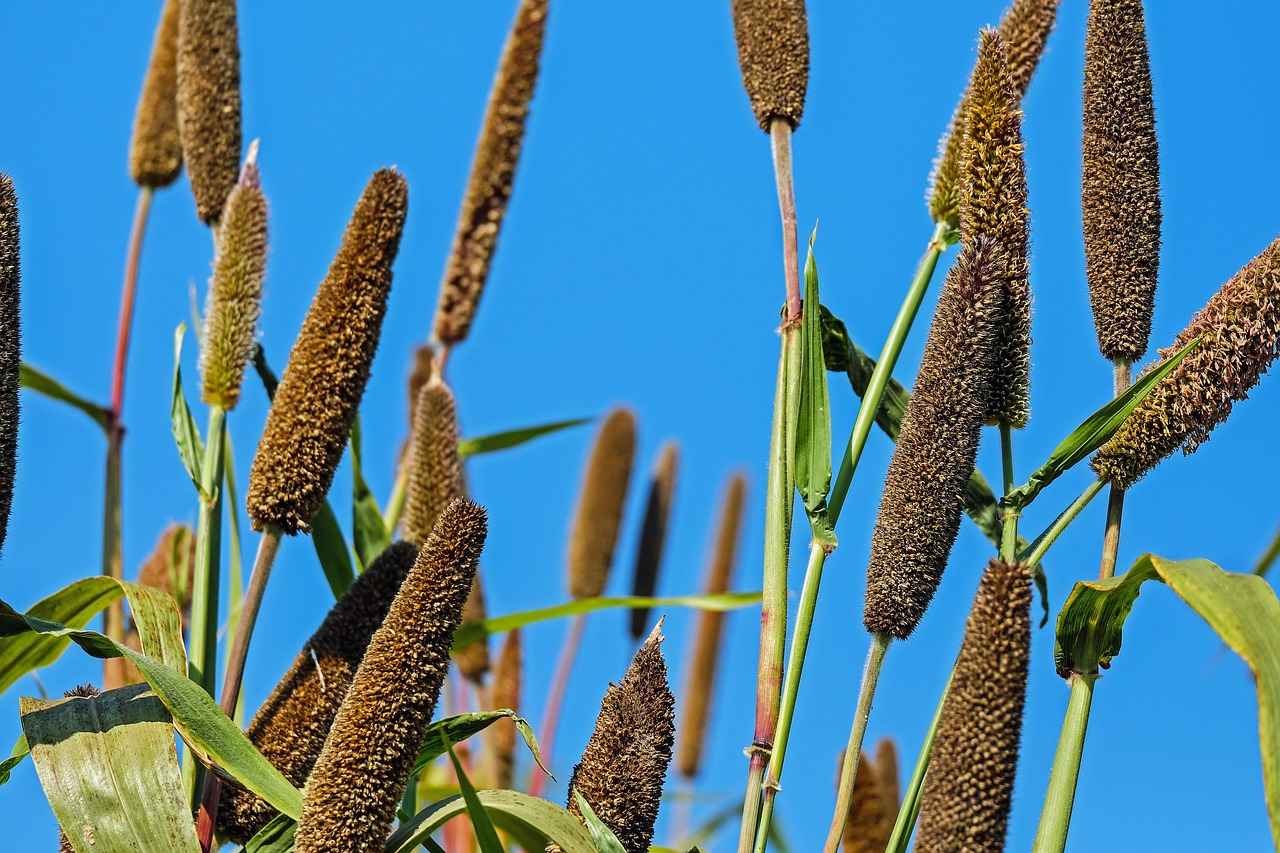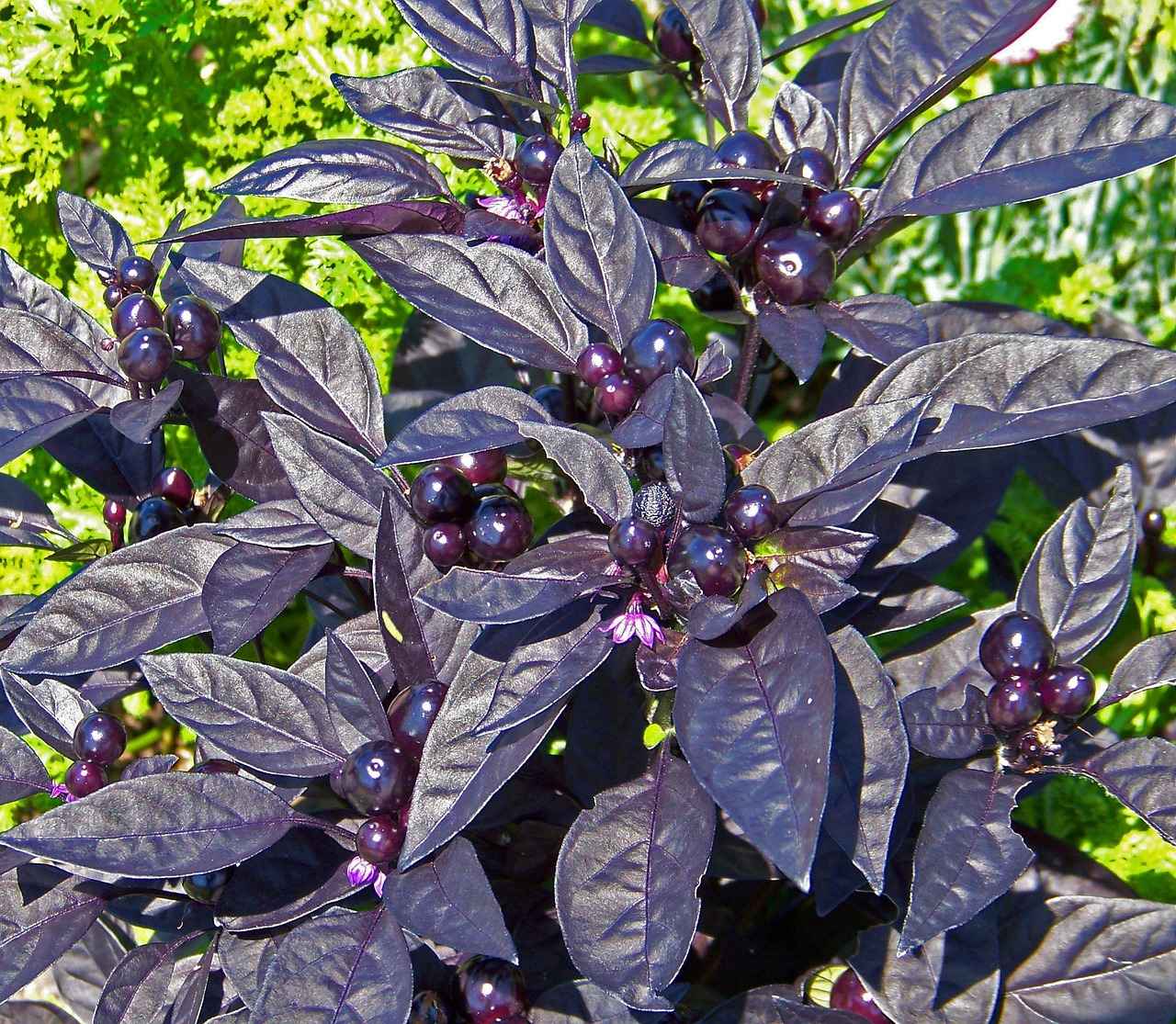Akoya pearl necklaces are not merely fashion accessories; they are symbols of elegance and sophistication. These exquisite pieces of jewelry carry a rich history and cultural significance, making them highly sought after by collectors and fashion enthusiasts alike. In this article, we will explore the unique characteristics of Akoya pearls, delve into their fascinating history, discuss their care and maintenance, and uncover why they are treasured in the world of jewelry.
What Are Akoya Pearls?
Akoya pearls are renowned for their exceptional luster and quality. Cultivated primarily in Japan, these pearls are formed within the Pinctada fucata oyster. What sets Akoya pearls apart from other types is their round shape, which is often considered the ideal form for a pearl. They typically range in size from 2mm to 10mm and are known for their brilliant white color, often with rose or cream overtones. The unique characteristics of Akoya pearls make them a popular choice for necklaces, earrings, and other jewelry pieces.
History of Akoya Pearls
The history of Akoya pearls dates back to the early 20th century when Japanese pearl farmers began cultivating them. The process was pioneered by Kokichi Mikimoto, who is credited with developing the first successful method of culturing pearls. Over the years, Akoya pearls have gained immense popularity, especially in Western fashion. Their association with luxury and elegance has made them a staple in high-end jewelry collections.
The Cultivation Process
The cultivation of Akoya pearls involves a meticulous process that requires skill and patience. Farmers carefully insert a small bead into the oyster, which then secretes layers of nacre around it, forming the pearl. The environmental conditions, such as water temperature and salinity, play a crucial role in the growth of these pearls. The entire cultivation process can take anywhere from 6 months to 2 years, depending on the desired size and quality.
Harvesting Akoya Pearls
Harvesting Akoya pearls is a critical stage in the pearl farming process. Farmers must carefully open the oysters to retrieve the pearls without damaging them. This process requires precision and expertise, as the pearls can be easily harmed during extraction. Challenges such as disease and environmental changes can impact the yield, making the harvesting of Akoya pearls both an art and a science.
Quality Control in Akoya Pearls
Ensuring the quality of Akoya pearls is vital for their market value. Pearls are graded based on several criteria, including luster, surface quality, shape, and size. The most valuable Akoya pearls exhibit high luster and minimal blemishes. Understanding these grading systems can help buyers make informed decisions when purchasing Akoya pearl jewelry.
Characteristics of Akoya Pearls
Akoya pearls possess distinct features that contribute to their desirability. They are known for their high luster, which gives them a reflective quality that enhances their beauty. The pearls typically have a smooth surface and are available in various colors, including white, cream, and even blue. Their size and shape also play a significant role in their appeal, with round pearls being the most sought after.
Why Choose an Akoya Pearl Necklace?
Akoya pearl necklaces are not just beautiful; they also hold sentimental value. These necklaces are often chosen for special occasions, such as weddings and anniversaries, as they symbolize love and commitment. Their versatility allows them to be worn for both formal and casual events, making them a staple in any jewelry collection.
Versatility in Fashion
One of the most compelling reasons to choose an Akoya pearl necklace is its versatility. These necklaces can be styled in numerous ways, complementing a wide range of outfits. Whether paired with a little black dress or casual attire, Akoya pearls add a touch of sophistication to any look. Their classic design ensures that they remain timeless accessories that never go out of style.
Symbolism and Sentiment
Pearls are often associated with purity and wisdom. Wearing or gifting an Akoya pearl necklace can carry deep emotional significance, representing cherished memories or milestones. This cultural symbolism enhances their appeal, making them a thoughtful gift for loved ones.
Caring for Your Akoya Pearl Necklace
Proper care is essential for maintaining the beauty of Akoya pearls. To ensure longevity, it is crucial to clean and store them correctly. Regular maintenance helps preserve their luster and prevents damage.
Cleaning Techniques
Cleaning your Akoya pearl necklace requires specific methods to avoid damaging the surface. It is recommended to wipe the pearls with a soft, damp cloth after each wear. For deeper cleaning, a mild soap solution can be used, but avoid harsh chemicals that can harm the pearls.
Storage Solutions
Storing your pearls correctly helps prevent damage. It is best to keep them in a soft pouch or a separate compartment in a jewelry box to avoid scratches. Pearls should be stored away from direct sunlight and humidity to maintain their quality.
The Cost of Akoya Pearl Necklaces
Understanding the pricing of Akoya pearl necklaces can be complex. Several factors influence their cost, including quality, size, and market demand. High-quality pearls with excellent luster and minimal blemishes tend to be more expensive.
Factors Influencing Price
Several factors determine the price of Akoya pearls. The cultivation methods used, the rarity of the pearls, and current market trends all play a role in their valuation. Buyers should consider these aspects when investing in Akoya pearl jewelry.
Where to Buy Akoya Pearls
Finding reputable sources for Akoya pearls is crucial. Authentic Akoya pearl necklaces can be purchased from established jewelers, both online and in brick-and-mortar stores. Always ensure that the seller provides certification of authenticity to guarantee the quality of the pearls.
The Timeless Appeal of Akoya Pearls
The enduring charm of Akoya pearl necklaces continues to captivate jewelry lovers worldwide. Their unique attributes, rich history, and cultural significance make them a cherished addition to any jewelry collection.

What Are Akoya Pearls?
Akoya pearls are a type of cultured pearl that are highly esteemed for their remarkable luster and quality. Originating primarily from the Akoya oyster (Pinctada fucata), these pearls are primarily cultivated in the waters of Japan and China. Their unique characteristics and exquisite beauty make them a popular choice for jewelry enthusiasts worldwide.
Origins of Akoya Pearls
The cultivation of Akoya pearls began in the early 20th century, around 1913, when Japanese entrepreneur Kokichi Mikimoto successfully developed a method for cultivating pearls. This marked a significant turning point in the pearl industry, as it allowed for the mass production of high-quality pearls. Mikimoto’s dedication to perfection led to the establishment of the first pearl farm, which remains a cornerstone of the Akoya pearl industry today.
Unique Characteristics of Akoya Pearls
What sets Akoya pearls apart from other types of pearls? Several factors contribute to their distinctiveness:
- Luster: Akoya pearls are celebrated for their brilliant luster, which is a result of the thick nacre layer produced by the Akoya oyster. This gives them a reflective quality that enhances their beauty.
- Size: Typically, Akoya pearls range from 6mm to 9mm in diameter, making them smaller than many other types of cultured pearls, such as South Sea or Tahitian pearls.
- Color: They are most commonly found in white or cream colors, often with subtle overtones of rose, silver, or gold, which adds to their allure.
- Shape: While round pearls are the most sought after, Akoya pearls can also be found in various shapes, including button, drop, and baroque, offering options for diverse jewelry designs.
What Makes Akoya Pearls Special?
Akoya pearls are not just valued for their aesthetic appeal; they also carry significant cultural and emotional weight. Traditionally, they symbolize purity and wisdom, making them a popular choice for weddings and special occasions. Gifting an Akoya pearl necklace can convey deep sentiments and appreciation, enhancing their value beyond mere monetary worth.
Moreover, the meticulous farming process ensures that each pearl is a unique masterpiece. Farmers invest considerable time and effort into nurturing the oysters, monitoring environmental conditions, and ensuring the health of the marine ecosystem. This dedication results in pearls that are not only beautiful but also represent the harmony between nature and craftsmanship.
In conclusion, Akoya pearls stand out in the world of jewelry due to their exceptional luster, quality, and cultural significance. They are a testament to the artistry of pearl cultivation and continue to capture the hearts of jewelry lovers around the globe.

History of Akoya Pearls
The is a fascinating journey that intertwines cultural significance, technological advancements, and the artistry of jewelry making. These exquisite pearls, primarily cultivated in Japan, have a rich legacy that dates back to the early 20th century. Understanding their history not only highlights their unique characteristics but also showcases their evolution into a symbol of elegance and sophistication.
The story of Akoya pearls began in the early 1900s when Mikimoto Kokichi, a Japanese entrepreneur, successfully cultivated the first round pearls using a method he developed. This marked a significant milestone in the pearl industry, as it shifted the focus from natural to cultured pearls. The Akoya oyster, known scientifically as Pinctada fucata, became the primary source for these pearls, celebrated for their luster and size.
By the 1920s, Akoya pearls gained immense popularity, particularly in Western cultures. Their luminous beauty and versatility made them a favored choice for jewelry designers and consumers alike. The classic Akoya pearl necklace became a staple accessory, often associated with elegance and refinement. Hollywood actresses and fashion icons of the time further propelled their status, making them a must-have for the affluent and style-conscious.
Akoya pearls are not just beautiful; they carry deep cultural meanings. In Japan, they are often associated with purity and wisdom, making them popular gifts for significant life events such as weddings and graduations. The tradition of gifting pearls symbolizes a wish for a prosperous and harmonious life. This cultural significance has contributed to the enduring appeal of Akoya pearls across generations.
As the demand for Akoya pearls grew, so did the advancements in cultivation techniques. Pearl farmers began to adopt more sophisticated methods to enhance the quality and yield of their harvests. Innovations in environmental management and nurturing techniques have allowed for more sustainable practices, ensuring that Akoya pearls remain a viable product for future generations. Today, the industry emphasizes not only quality but also the ecological impact of pearl farming.
In contemporary times, Akoya pearls continue to hold a prestigious place in the jewelry market. They are often featured in high-end collections and are sought after by collectors and enthusiasts. The pearls are available in various sizes and colors, allowing for a wide range of designs that cater to diverse tastes. Their timeless appeal and adaptability ensure that Akoya pearls remain a beloved choice for both classic and modern jewelry pieces.
In conclusion, the history of Akoya pearls is a testament to their enduring beauty and cultural relevance. From their discovery to their rise in popularity, these pearls have captured the hearts of many, making them a significant part of jewelry history.
The Cultivation Process
The cultivation of Akoya pearls is a highly intricate and labor-intensive process that requires a deep understanding of marine biology and environmental conditions. Akoya pearls are primarily cultivated in the coastal waters of Japan, where the unique ecosystem provides the ideal conditions for these exquisite pearls to thrive. This section will explore the various stages involved in the farming of Akoya pearls, including the techniques employed and the environmental factors that contribute to their growth.
At the heart of Akoya pearl cultivation is the process of nucleation, where a small bead, typically made from shell material, is implanted into the oyster, known as the Pinctada fucata. This step is crucial as it initiates the pearl formation process. The oyster then secretes layers of nacre around the bead, gradually forming a pearl over time. The entire nucleation process is performed with precision, often requiring skilled technicians who understand the nuances of each oyster’s condition.
Following nucleation, the oysters are placed in specially designed floating nets that protect them from predators and harsh environmental conditions. These nets are often located in calm, shallow waters where sunlight can penetrate, promoting the growth of essential algae that serve as food for the oysters. Regular monitoring is essential during this period. Farmers must frequently check the health of the oysters, ensuring they are free from disease and stress.
Environmental conditions play a significant role in the success of Akoya pearl farming. The ideal water temperature ranges from 24°C to 28°C, and the salinity levels must be carefully maintained. Fluctuations in these parameters can adversely affect the oysters and the quality of the pearls produced. Additionally, farmers must be vigilant about water quality, as pollutants can hinder the growth of the oysters and compromise the integrity of the pearls.
After approximately 6 to 18 months of careful nurturing, the oysters are ready for harvesting. This stage requires expertise, as farmers must determine the optimal time to harvest to ensure the best quality pearls. The harvesting process involves carefully opening the oysters and retrieving the pearls without damaging them. This meticulous approach is essential to maintain the high standards associated with Akoya pearls.
In conclusion, the cultivation of Akoya pearls is a complex process that combines science, skill, and a deep respect for nature. From the initial nucleation to the careful harvesting of the pearls, each step is designed to ensure that the final product meets the high standards expected by consumers. Understanding this process not only enhances appreciation for Akoya pearls but also highlights the dedication of those involved in their cultivation.
Harvesting Akoya Pearls
Harvesting is a pivotal stage in the pearl farming process, especially for the renowned Akoya pearls. This delicate endeavor requires precision and care, as it directly impacts the quality and luster of the pearls. In this section, we will explore the various methods employed in the harvesting of Akoya pearls, as well as the challenges that pearl farmers face during this critical phase.
The harvesting of Akoya pearls generally involves two primary methods: manual harvesting and mechanized harvesting. Manual harvesting is the traditional approach, where skilled divers carefully retrieve the oysters from the ocean floor. This method allows for a thorough inspection of each oyster, ensuring that only the highest quality pearls are selected.
- Manual Harvesting: Divers descend to depths ranging from 10 to 20 meters to collect oysters. This process requires significant training and experience, as divers must navigate underwater currents and potential hazards.
- Mechanized Harvesting: In contrast, mechanized harvesting employs specialized equipment to collect oysters more efficiently. This method is often used in larger operations but may lead to a higher risk of damaging the oysters during collection.
Despite the advancements in technology and techniques, pearl farmers encounter numerous challenges during the harvesting process. One significant issue is the environmental impact on oyster populations. Factors such as pollution, climate change, and overfishing can adversely affect the health of oyster beds, leading to lower yields.
- Environmental Factors: Changes in water temperature and quality can hinder the growth of oysters, making it essential for farmers to monitor their farming environments closely.
- Market Demand: The fluctuating demand for Akoya pearls can also pose challenges. Farmers must balance the need for quality pearls with the pressures of market trends, which can affect their harvesting schedules.
Quality control is a critical aspect of the harvesting process. Farmers must ensure that the pearls meet stringent quality standards before they are brought to market. This involves not only selecting the right oysters but also assessing the pearls for size, shape, and luster. Each pearl is carefully examined, and only those that meet the desired criteria are kept for sale.
In summary, the harvesting of Akoya pearls is a complex process that combines traditional knowledge with modern techniques. While the methods of harvesting have evolved, the challenges faced by pearl farmers remain significant. Understanding these aspects is crucial for appreciating the value and beauty of Akoya pearls, making them a treasured choice in the world of jewelry.
Quality Control in Akoya Pearls
Ensuring the highest quality of Akoya pearls is essential for maintaining their reputation in the luxury jewelry market. The journey from the ocean to the consumer involves several rigorous standards and grading systems designed to assess the quality of these exquisite gems. This section will explore the various factors that contribute to the quality control process of Akoya pearls.
Akoya pearls are primarily cultivated in Japan, where the environment plays a crucial role in their formation. The quality control process begins at the farming stage, where the environmental conditions—such as water temperature, salinity, and cleanliness—are meticulously monitored. Farmers must ensure that the oysters are healthy and the waters are free from pollutants to produce high-quality pearls.
Once harvested, the pearls undergo a detailed grading process based on several key criteria:
- Luster: The luster of a pearl is one of its most important qualities, reflecting how light interacts with its surface. High-quality Akoya pearls exhibit a bright, reflective luster, which enhances their overall beauty.
- Surface Quality: Pearls are assessed for any surface blemishes or imperfections. The fewer the flaws, the higher the quality grade. Premium Akoya pearls often have a smooth surface with minimal to no blemishes.
- Shape: While round pearls are the most sought after, Akoya pearls can also come in various shapes, including semi-round, oval, and baroque. The shape impacts the pearl’s market value, with perfectly round pearls commanding the highest prices.
- Color: Akoya pearls are typically white or cream, but they can also exhibit shades of pink, silver, and blue. The color should be even and rich, contributing to the pearl’s overall appeal.
- Size: The size of Akoya pearls generally ranges from 2mm to 10mm, with larger pearls being rarer and more valuable. Size is an essential factor in determining the pearl’s market price.
After grading, pearls are assigned a quality designation, which can range from A to AAA, with AAA being the highest quality. This grading system helps consumers understand the value and quality of the pearls they are purchasing.
Additionally, reputable jewelers often provide certificates of authenticity that detail the grading of each pearl. This certification process adds an extra layer of assurance for buyers, ensuring that they receive a product that meets high standards of quality.
In conclusion, the quality control of Akoya pearls is a multifaceted process that encompasses careful farming practices, meticulous grading, and certification. By adhering to these rigorous standards, the industry maintains the prestige associated with Akoya pearls, making them a cherished choice for jewelry enthusiasts around the world.
Characteristics of Akoya Pearls
Akoya pearls are celebrated for their exceptional beauty and unique characteristics that set them apart in the world of fine jewelry. These pearls, primarily cultivated in Japan, are known for their remarkable luster, size, shape, and color. Each of these features contributes significantly to their desirability among pearl enthusiasts and collectors.
- Luster: One of the defining traits of Akoya pearls is their high luster. This is a result of the thick nacre layer that forms around the nucleus during the cultivation process. The luster is often described as a mirror-like shine that reflects light beautifully, enhancing the pearl’s overall appearance.
- Size: Akoya pearls typically range in size from 5mm to 11mm, with the most sought-after sizes being between 7mm and 8mm. The size of the pearl can influence its price, with larger pearls often commanding higher values due to their rarity.
- Shape: While round Akoya pearls are the most popular and prized for their symmetry, they can also be found in various shapes including baroque, drop, and semi-round. The shape can affect the pearl’s aesthetic appeal and is a key factor in determining its market value.
- Color: Akoya pearls are primarily known for their classic white and cream colors, but they can also exhibit shades of silver, rose, and gold. The color of a pearl can enhance its beauty and is often a personal preference for buyers.
The cultivation of Akoya pearls involves a meticulous process that ensures the quality of each pearl. Farmers carefully select the oysters and monitor their growth conditions to produce pearls with the best characteristics. This attention to detail contributes to the overall high quality and desirability of Akoya pearls.
Moreover, the iridescence of Akoya pearls, often referred to as “orient,” adds another layer of beauty. This phenomenon occurs when light reflects off the layers of nacre, creating a shimmering effect that can vary based on the angle of light and the viewer’s perspective.
In conclusion, the unique characteristics of Akoya pearls—ranging from their exceptional luster and size to their stunning colors and shapes—make them a timeless choice for jewelry lovers. Understanding these features can help potential buyers appreciate the artistry and craftsmanship involved in creating these exquisite gems. Whether worn as a necklace, bracelet, or earrings, Akoya pearls continue to be a symbol of elegance and sophistication in the world of jewelry.

Why Choose an Akoya Pearl Necklace?
Akoya pearl necklaces are not merely accessories; they are timeless treasures that encapsulate beauty, elegance, and deep sentimental value. Many individuals choose these exquisite necklaces for a variety of reasons, making them a favored choice for both special occasions and everyday wear.
- Unmatched Elegance: The lustrous sheen of Akoya pearls adds a touch of sophistication to any outfit. Whether paired with formal attire or casual wear, these necklaces elevate your look effortlessly.
- A Symbol of Love: Akoya pearl necklaces are often gifted during significant life events such as weddings, anniversaries, and graduations. They serve as a lasting reminder of cherished moments and relationships.
- Versatility: One of the standout features of Akoya pearl necklaces is their versatility. They can be styled in numerous ways, making them suitable for various occasions. From a simple strand worn at a business meeting to a layered look for a night out, these necklaces adapt to your lifestyle.
- Cultural Significance: In many cultures, pearls symbolize purity and wisdom. Wearing or gifting an Akoya pearl necklace can carry deep emotional weight, representing the bond between the giver and the recipient.
- Quality Craftsmanship: Akoya pearls are known for their high quality and are often cultivated with meticulous care. This attention to detail in their creation ensures that each necklace is not only beautiful but also durable.
Moreover, the emotional connection people have with Akoya pearl necklaces cannot be understated. Many wear these necklaces as a reminder of a loved one or a significant life milestone. The act of wearing pearls can evoke feelings of nostalgia and warmth, making them more than just a piece of jewelry.
In addition to their sentimental value, Akoya pearls are also a wise investment. Their enduring popularity and timeless appeal mean that they often retain or even increase in value over time. This makes them not only a beautiful addition to your jewelry collection but also a financial asset.
Overall, choosing an Akoya pearl necklace is about more than just aesthetics; it’s about embracing a piece of art that carries history, emotion, and significance. Whether you are treating yourself or gifting someone special, an Akoya pearl necklace stands out as a meaningful choice that transcends trends and time.
Versatility in Fashion
Akoya pearl necklaces are renowned for their exceptional versatility, making them a favored choice for various occasions and styles. Their timeless elegance allows them to seamlessly transition from casual daywear to formal evening attire, proving to be a staple in any jewelry collection.
One of the most appealing aspects of Akoya pearl necklaces is their ability to complement a wide range of outfits. For a casual look, pairing a simple strand of Akoya pearls with a classic white t-shirt and jeans instantly elevates the outfit. The pearls add a touch of sophistication without overwhelming the simplicity of the look. This effortless pairing makes Akoya pearls an ideal choice for brunches, casual outings, or even workplace attire.
When it comes to formal occasions, Akoya pearl necklaces shine even brighter. Their luster and sheen enhance evening gowns and cocktail dresses, making them perfect for weddings, galas, and other sophisticated events. A multi-strand Akoya pearl necklace can create a statement look, while a single strand can maintain a more understated elegance. The versatility of these necklaces allows wearers to choose the style that best fits the occasion, whether it be a grand celebration or an intimate dinner.
Moreover, Akoya pearl necklaces are not limited to traditional styles. They can be creatively styled with modern trends. For instance, layering multiple necklaces of different lengths, including Akoya pearls, can create a trendy bohemian look. Mixing pearls with other materials, such as leather or gold chains, can add an edgy twist, appealing to fashion-forward individuals. This adaptability showcases the timelessness of Akoya pearls, as they can be styled in a way that aligns with current fashion trends while still honoring their classic roots.
In addition to their styling versatility, Akoya pearl necklaces also hold sentimental value. They are often gifted for significant milestones, such as graduations, anniversaries, or birthdays, making them cherished pieces in a jewelry collection. Their ability to carry emotional significance adds another layer to their versatility, as they can be worn to commemorate special moments or simply to feel connected to loved ones.
To sum up, the versatility of Akoya pearl necklaces makes them an essential accessory for anyone looking to enhance their wardrobe. Whether dressing up for a formal event or keeping it casual, these necklaces provide endless styling options. Their ability to blend tradition with modernity ensures that they remain a beloved choice for generations to come.
Symbolism and Sentiment
Akoya pearls, cherished for their exquisite beauty and quality, carry a depth of symbolism and sentiment that transcends mere adornment. When gifted or worn, an Akoya pearl necklace embodies emotions and cultural significance that resonate with many. This section explores the profound meanings associated with these pearls, illuminating why they are treasured as gifts and personal accessories.
Throughout history, pearls have been regarded as symbols of purity and wisdom. Akoya pearls, in particular, are often associated with personal growth and transformation. Their luminous appearance reflects the light of knowledge and the essence of clarity, making them a popular choice for significant life events such as graduations, weddings, and anniversaries. The act of gifting an Akoya pearl necklace signifies a wish for the recipient to embrace wisdom and purity in their journey.
In various cultures, pearls have been considered tokens of love and affection. In Japan, where Akoya pearls are predominantly cultivated, they symbolize elegance and refinement. Gifting an Akoya pearl necklace is often seen as a gesture of deep respect and admiration. It is common for parents to gift their daughters an Akoya necklace on special occasions, symbolizing their love and hopes for their future.
Wearing an Akoya pearl necklace can evoke strong emotional connections. Many individuals report feeling a sense of calmness and confidence when adorned with pearls. This emotional resonance is attributed to the pearls’ natural beauty and their association with personal milestones. For example, brides often choose Akoya pearls for their wedding day, believing they bring harmony and prosperity to their marriage.
In contemporary fashion, Akoya pearl necklaces have evolved into versatile pieces that can be worn on various occasions. Their adaptability allows them to be styled with both casual and formal attire, making them a staple in many jewelry collections. The enduring appeal of these pearls lies not only in their aesthetic qualities but also in the sentimental stories they carry. Each necklace can symbolize a unique journey or a cherished moment, making it a personal treasure.
- Timeless Elegance: Akoya pearl necklaces exude a classic beauty that never goes out of style.
- Meaningful Symbolism: They represent purity, wisdom, and emotional depth, making them ideal for significant occasions.
- Versatile Fashion: These necklaces can complement a wide range of outfits, suitable for both everyday wear and special events.
In conclusion, the symbolism and sentiment behind Akoya pearl necklaces make them more than just beautiful accessories. They are cherished tokens of love, wisdom, and personal growth. Whether worn or gifted, these pearls carry a legacy that connects individuals to their values and aspirations, making them timeless treasures in the world of jewelry.

Caring for Your Akoya Pearl Necklace
Proper care is essential for maintaining the beauty and integrity of Akoya pearls. These exquisite gems are not only treasured for their stunning appearance but also for their sentimental value. To ensure that your Akoya pearl necklace remains a cherished piece for years to come, follow these practical tips on cleaning, storage, and handling.
Cleaning Techniques
Cleaning your Akoya pearl necklace should be done with great care to avoid damaging the delicate surface of the pearls. Here are some effective cleaning methods:
- Use a Soft Cloth: After wearing your necklace, gently wipe each pearl with a soft, lint-free cloth. This removes any oils, dirt, or makeup residues that may have accumulated.
- Gentle Soap Solution: For a deeper clean, mix a few drops of mild soap with lukewarm water. Dip a soft cloth into the solution, wring it out, and gently wipe each pearl. Avoid soaking the necklace as prolonged exposure to water can weaken the silk thread.
- Avoid Harsh Chemicals: Never use harsh cleaners or chemicals, as they can damage the nacre of the pearls. Stick to natural cleaning agents to maintain their luster.
Storage Solutions
Proper storage is crucial for preventing damage to your Akoya pearls. Here are some recommended storage practices:
- Keep Them Separate: Store your necklace in a soft pouch or a separate compartment in a jewelry box to prevent scratching against other jewelry items.
- Humidity Control: Pearls are sensitive to extreme temperatures and humidity. Ideally, store them in a cool, dry place, away from direct sunlight to avoid discoloration.
- Regularly Check for Damage: Periodically inspect your necklace for any signs of wear or damage, such as fraying threads or loose pearls. If you notice any issues, consult a professional jeweler for repairs.
Handling Tips
How you handle your Akoya pearl necklace can significantly impact its longevity. Here are some best practices:
- Put on Last: Always wear your pearl necklace as the last accessory when dressing to avoid exposure to perfumes, hairsprays, or cosmetics that can harm the pearls.
- Remove Before Activities: Take off your necklace before engaging in activities like swimming, exercising, or cleaning to prevent accidental damage.
- Regularly Rotate: If you have multiple pearl pieces, rotate their use. This helps to minimize wear on a single necklace and allows you to enjoy all your beautiful pieces.
By following these careful cleaning, storage, and handling techniques, you can preserve the beauty and value of your Akoya pearl necklace for generations. Remember, these pearls are not just jewelry; they are heirlooms that carry memories and stories, making their proper care all the more important.
Cleaning Techniques
Cleaning your Akoya pearl necklace is essential for maintaining its luster and overall beauty. Given the delicate nature of pearls, using the right cleaning methods is crucial to avoid damaging their surface. Below, we outline the best practices for safely cleaning your pearls while preserving their charm.
Why Cleaning is Important
Akoya pearls are organic gemstones that can be easily affected by dirt, oils, and environmental factors. Regular cleaning helps to remove these substances, ensuring that your pearls remain radiant and free from any potential damage. Neglecting to clean your pearls can lead to a dull appearance and may even result in permanent damage over time.
Gentle Cleaning Methods
- Use a Soft Cloth: The simplest way to clean your Akoya pearl necklace is to gently wipe it with a soft, lint-free cloth after each wear. This removes any oils or residues that may have accumulated.
- Warm Water and Mild Soap: For a deeper clean, mix a few drops of mild soap (like baby shampoo) with warm water. Dip a soft cloth into the solution, wring it out, and gently wipe the pearls. Avoid soaking the necklace, as prolonged exposure to water can weaken the silk thread.
- Rinse and Dry: After cleaning, use a separate damp cloth to wipe off any soap residue. Then, gently pat the pearls dry with a soft cloth. Ensure they are completely dry before storing them.
What to Avoid When Cleaning
- Avoid Harsh Chemicals: Never use bleach, ammonia, or other harsh cleaners, as these can damage the surface of the pearls.
- Do Not Use Ultrasonic Cleaners: Ultrasonic cleaning devices can cause pearls to crack or become damaged, so it’s best to avoid them entirely.
- Keep Away from Heat: High temperatures can cause pearls to lose their luster. Avoid exposing them to direct sunlight or heat sources while cleaning.
Professional Cleaning Services
If your Akoya pearl necklace requires more than just a gentle clean, consider seeking professional help. Jewelers who specialize in pearl care can provide thorough cleaning and maintenance services, ensuring that your pearls are treated with the utmost care. They can also check for any signs of wear or damage that you might have missed.
Storage Considerations
After cleaning, proper storage is essential to keep your Akoya pearls in pristine condition. Store them in a soft pouch or a dedicated jewelry box to prevent scratches from other jewelry. Avoid hanging them, as this can stretch the silk thread over time.
By following these cleaning techniques, you can ensure that your Akoya pearl necklace remains a treasured piece in your jewelry collection for years to come. Regular care and maintenance not only enhance the beauty of your pearls but also help preserve their sentimental value.
Storage Solutions
When it comes to preserving the beauty and integrity of your Akoya pearl necklace, proper storage solutions are essential. Pearls are delicate and require special attention to prevent damage from environmental factors and physical strain. This section will explore the ideal storage conditions and methods to ensure your pearls remain in pristine condition for years to come.
Storing your pearls correctly is crucial for preventing wear and tear. Pearls are composed of calcium carbonate, which makes them susceptible to scratches, discoloration, and other forms of damage. Additionally, exposure to harsh chemicals, humidity, and temperature fluctuations can adversely affect their luster and quality. By understanding the importance of proper storage, you can take proactive measures to protect your investment.
- Temperature: Pearls should be stored in a cool, dry place. Extreme temperatures can cause the pearls to dry out or become overly moist, leading to deterioration.
- Humidity: Maintain moderate humidity levels. Too much moisture can lead to mold, while too little can cause pearls to become brittle.
- Light Exposure: Keep pearls away from direct sunlight. Prolonged exposure can cause fading and loss of luster.
There are several effective methods for storing your Akoya pearl necklace:
- Soft Pouches: Use a soft, breathable pouch made of silk or cotton to store your pearls. This will help prevent scratches and allow them to breathe.
- Jewelry Boxes: Invest in a jewelry box with a soft lining. Avoid boxes made of materials that can scratch the surface of the pearls.
- Individual Compartment Storage: If possible, store each pearl necklace in its own compartment to minimize friction and prevent tangling.
In addition to proper storage, regular maintenance is key to preserving your pearls. Periodically check your necklace for any signs of wear, such as frayed threads or loose clasps. If you notice any issues, it’s best to have them repaired by a professional jeweler to avoid further damage.
When traveling, take extra precautions to protect your Akoya pearl necklace. Always pack it in a protective pouch or case, and avoid placing it in checked luggage. Carry it with you in your handbag or carry-on to minimize the risk of damage.
By following these storage solutions and maintenance tips, you can ensure that your Akoya pearl necklace remains a cherished piece of jewelry that retains its beauty and value over time. Remember, the care you give your pearls today will pay off in the future, allowing you to enjoy their elegance for many years to come.

The Cost of Akoya Pearl Necklaces
Understanding the pricing of Akoya pearl necklaces can be complex. This section breaks down the factors that influence their cost, including quality, size, and market demand.
The pricing of Akoya pearl necklaces is influenced by a variety of factors, making it essential for potential buyers to understand what contributes to their value. Akoya pearls are celebrated for their stunning luster and quality, but these attributes come with a price tag that can vary significantly. Below, we explore the key factors that affect the cost of these exquisite pieces.
One of the primary determinants of price is the quality of the pearls themselves. Akoya pearls are graded based on several criteria:
- Luster: The shine and reflective quality of the pearl’s surface. Higher luster increases value.
- Surface Quality: Pearls with fewer blemishes and imperfections are more desirable.
- Shape: Round pearls are the most sought after, while irregular shapes may be less expensive.
- Color: While classic white is popular, colors like pink or cream can also influence the price.
In summary, the higher the quality of the pearl, the higher the price you can expect to pay.
The size of the pearls is another critical factor in determining price. Generally, larger pearls are more expensive due to their rarity. Akoya pearls typically range from 2mm to 10mm in diameter, with sizes above 8mm commanding premium prices. Buyers should consider their preferences and budget when selecting the size of their necklace.
The market demand for Akoya pearls fluctuates based on fashion trends, cultural significance, and economic conditions. For instance, during wedding seasons or holidays, demand may surge, leading to higher prices. Additionally, as more consumers seek sustainable and ethically sourced jewelry, the demand for high-quality Akoya pearls has increased, further impacting pricing.
Finding a reputable seller is crucial for ensuring you receive authentic Akoya pearls. Prices can vary significantly across different retailers. Online platforms often provide competitive pricing, but it’s essential to verify the seller’s credibility. Local jewelers may offer personalized service and the opportunity to inspect the pearls in person, which can justify higher prices due to the added value of trust and expertise.
When purchasing an Akoya pearl necklace, buyers should also account for additional costs such as:
- Jewelry Design: Custom designs or intricate settings can elevate the overall price.
- Certification: Certified pearls may come at a premium due to the assurance of quality.
- Insurance: Protecting your investment with insurance can add to the overall cost.
In conclusion, the cost of Akoya pearl necklaces is influenced by a combination of quality, size, market trends, and where you choose to purchase them. By understanding these factors, buyers can make informed decisions and select a piece that not only fits their budget but also reflects the timeless elegance that Akoya pearls are known for.
Factors Influencing Price
The valuation of Akoya pearls is a multifaceted process influenced by a variety of factors. Understanding these elements is crucial for anyone looking to invest in or appreciate the beauty of Akoya pearls. In this section, we will explore the key aspects that contribute to the pricing of these exquisite gems.
- Cultivation Methods: The way Akoya pearls are cultivated significantly impacts their price. These pearls are primarily farmed in Japan and China, where meticulous farming techniques are employed. The conditions in which the oysters are raised, including water quality, temperature, and feeding practices, play a vital role in the final quality of the pearls. Pearls cultivated in more controlled environments often command higher prices due to their superior quality and luster.
- Rarity: Rarity is another critical factor in determining the price of Akoya pearls. The size and shape of the pearls can affect their availability. Larger pearls, particularly those over 8mm, are much rarer and thus more valuable. Additionally, unique shapes or colors can also contribute to their rarity. For example, pearls with a deep rose or silver hue can be more sought after, leading to higher prices.
- Market Trends: The demand for Akoya pearls fluctuates based on market trends, which can significantly influence their pricing. Trends in fashion and jewelry can lead to increased demand, thereby raising prices. Moreover, economic factors, such as consumer spending power and global economic conditions, can also affect how much buyers are willing to pay for these pearls.
- Quality and Grading: The quality of Akoya pearls is assessed using a grading system that evaluates their luster, surface quality, shape, and size. Pearls that receive higher grades due to their exceptional characteristics will naturally command higher prices. For instance, pearls with a high luster and minimal blemishes are considered top-tier and can fetch premium prices in the market.
- Brand and Certification: The brand behind the Akoya pearl necklace can also impact its price. Renowned jewelers and brands often charge a premium for their pieces due to their reputation and the quality assurance they provide. Additionally, certified pearls with documentation of their origin and quality can attract higher prices, as buyers often prefer assurance of authenticity.
In summary, the price of Akoya pearls is influenced by a combination of cultivation methods, rarity, market trends, quality grading, and brand reputation. Understanding these factors can help buyers make informed decisions when purchasing Akoya pearls, ensuring they invest in pieces that not only hold beauty but also value over time.
Where to Buy Akoya Pearls
Finding reputable sources for Akoya pearls is crucial for ensuring that you purchase authentic and high-quality products. Whether you are looking for a stunning necklace for yourself or a thoughtful gift for a loved one, knowing where to buy Akoya pearls can make all the difference. Below, we explore various options, including both online and brick-and-mortar retailers, to help you make an informed decision.
- Online Retailers: The internet has made it easier than ever to find and purchase Akoya pearls. Many reputable online jewelry stores specialize in pearls, offering a wide range of styles and prices. Websites like James Allen and Pearls.com provide extensive selections along with detailed descriptions and customer reviews. When shopping online, always check for certifications and guarantees to ensure authenticity.
- Jewelry Boutiques: Local jewelry boutiques often carry a curated selection of Akoya pearl necklaces. Visiting a boutique allows you to see the pearls in person, assess their quality, and receive personalized service. Many independent jewelers pride themselves on sourcing high-quality pearls, and they can provide valuable information about the pearls’ origins.
- Department Stores: Many well-known department stores have jewelry sections that feature Akoya pearls. Stores like Macy’s and Neiman Marcus often carry a selection of fine jewelry, including Akoya pearls. While prices may be higher at department stores, the advantage is that they often offer return policies and warranties.
- Jewelry Shows and Expos: Attending jewelry shows or expos can be an excellent way to find authentic Akoya pearls. These events often feature multiple vendors, allowing you to compare prices and styles. Additionally, you can ask questions directly to the sellers, which can provide insights into the pearls’ quality and sourcing.
- Direct from Pearl Farms: For those who want to ensure the utmost authenticity, purchasing directly from pearl farms is an option. Some farms offer tours and allow customers to buy pearls directly from them. This route not only guarantees authenticity but also supports local economies and sustainable practices.
Tips for Ensuring Authenticity
Regardless of where you choose to buy your Akoya pearls, it is essential to do your due diligence. Here are some tips to help you ensure that you are purchasing genuine pearls:
- Certification: Look for pearls that come with a certificate of authenticity. This document should provide details about the pearl’s origin, quality, and grading.
- Reputation: Research the retailer’s reputation. Read customer reviews and check their ratings on platforms like the Better Business Bureau.
- Return Policy: Ensure that the retailer has a clear return policy in case the pearls do not meet your expectations.
- Ask Questions: Don’t hesitate to ask the seller questions about the pearls, such as their grading and care instructions. A knowledgeable seller will be happy to provide information.
In conclusion, finding reputable sources for Akoya pearls involves exploring various options, including online and physical stores. By taking the time to research and verify the authenticity of your purchase, you can ensure that you acquire a beautiful and genuine Akoya pearl necklace that you will cherish for years to come.

Conclusion: The Timeless Appeal of Akoya Pearls
The allure of Akoya pearl necklaces transcends mere aesthetics, weaving a rich tapestry of history, culture, and personal significance. As we explore their enduring charm, it becomes evident why these exquisite pieces continue to captivate jewelry enthusiasts around the globe.
One of the most defining characteristics of Akoya pearls is their exceptional luster. Unlike other pearls, Akoya pearls are renowned for their mirror-like shine, which is a result of their unique nacre composition. This brilliance not only enhances their visual appeal but also contributes to their status as a symbol of elegance and sophistication. Moreover, Akoya pearls typically range in size from 2mm to 10mm, allowing for a variety of styles and designs that cater to diverse tastes and occasions.
Historically, Akoya pearls have played a significant role in various cultures. Originating from Japan in the early 20th century, they were the first cultivated pearls, making them a milestone in the world of jewelry. Their rise to fame can be attributed to the pioneering efforts of Kokichi Mikimoto, who successfully cultivated these pearls and brought them to the global market. Today, Akoya pearls are not only a staple in traditional Japanese culture but have also become a beloved choice for modern bridal jewelry, symbolizing purity and love.
In terms of fashion, Akoya pearl necklaces offer remarkable versatility. Whether worn as a statement piece for formal events or as a subtle touch for everyday wear, these necklaces can effortlessly elevate any outfit. Their classic design allows them to be paired with various styles, from elegant evening gowns to casual attire, making them a must-have in any jewelry collection.
Furthermore, the sentimental value associated with Akoya pearls cannot be overlooked. Often gifted on special occasions such as graduations, anniversaries, or weddings, these necklaces carry emotional weight, serving as cherished heirlooms passed down through generations. The timeless nature of Akoya pearls ensures that they remain relevant in contemporary fashion while retaining their historical significance.
Maintaining the beauty of Akoya pearl necklaces is essential for preserving their allure. Proper care, including gentle cleaning and appropriate storage, ensures that these precious pieces remain in pristine condition. By following simple guidelines, wearers can enjoy their necklaces for years to come, allowing the legacy of Akoya pearls to continue.
In summary, the timeless appeal of Akoya pearl necklaces lies in their unique attributes, rich history, and cultural significance. As jewelry lovers continue to seek pieces that resonate with both beauty and meaning, Akoya pearls stand out as a testament to the enduring charm of nature’s treasures. Their ability to blend tradition with modernity ensures that they will remain a beloved choice for generations to come.
Frequently Asked Questions
- What are Akoya pearls?
Akoya pearls are a type of cultured pearl known for their exceptional luster and quality. They are primarily produced in Japan and are often considered the classic pearl choice for jewelry, especially necklaces.
- How are Akoya pearls cultivated?
The cultivation of Akoya pearls involves a meticulous process where oysters are carefully farmed in specific environmental conditions. This includes monitoring water quality and temperature to ensure optimal growth.
- Why should I choose an Akoya pearl necklace?
Choosing an Akoya pearl necklace means opting for timeless elegance. These necklaces are versatile and can be worn for both special occasions and everyday outfits, making them a staple in any jewelry collection.
- How do I care for my Akoya pearl necklace?
To maintain the beauty of your Akoya pearls, clean them gently with a soft cloth after wearing. Store them in a soft pouch or a separate compartment to avoid scratches, and keep them away from direct sunlight.
- What factors influence the price of Akoya pearl necklaces?
Several factors affect the pricing of Akoya pearls, including their size, shape, luster, and overall quality. Market demand and the rarity of specific types also play a significant role in determining their value.
- Where can I buy authentic Akoya pearl necklaces?
You can find authentic Akoya pearl necklaces at reputable jewelers, both online and in brick-and-mortar stores. It’s essential to choose certified dealers to ensure the quality and authenticity of your purchase.














